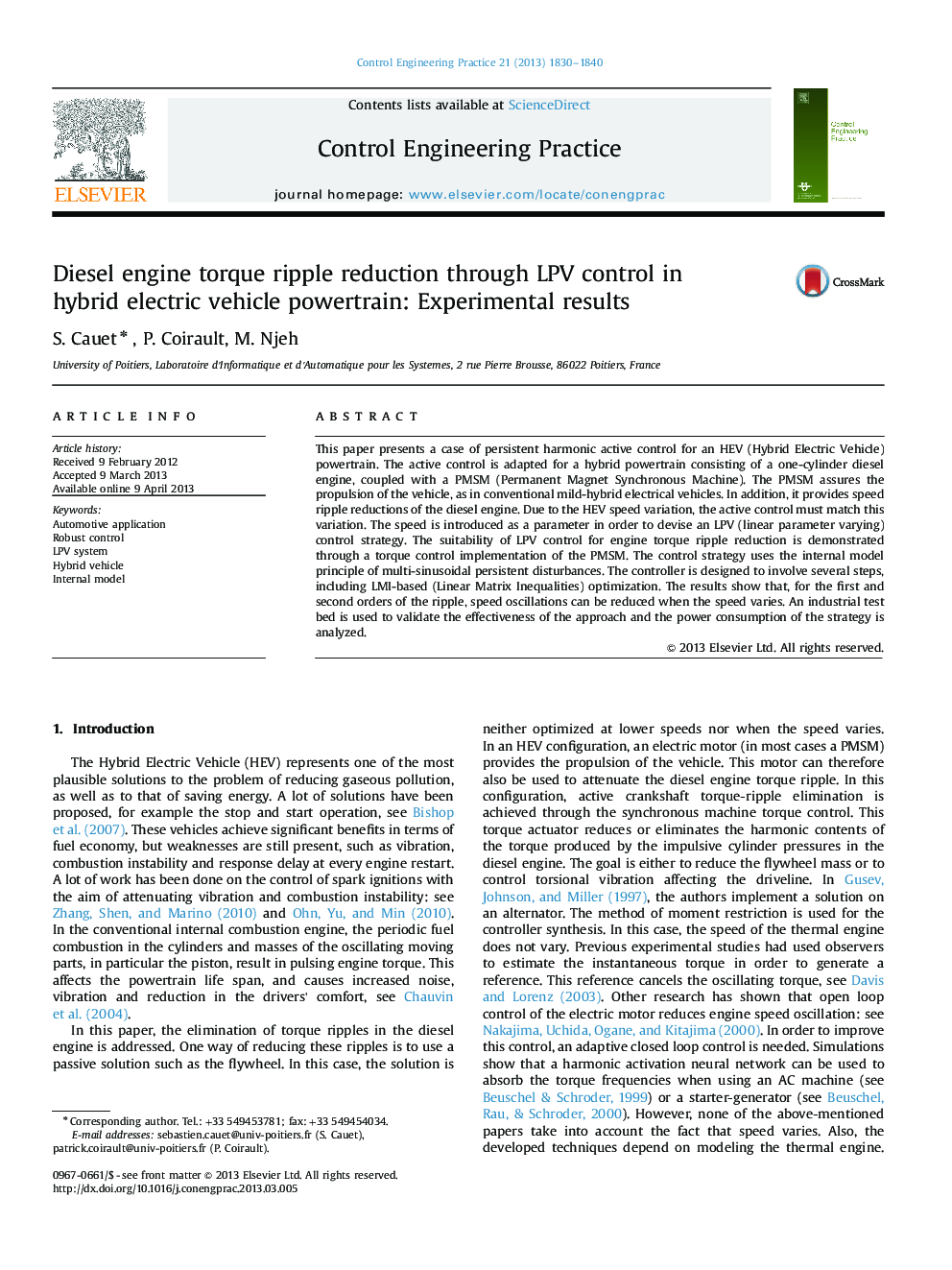| Article ID | Journal | Published Year | Pages | File Type |
|---|---|---|---|---|
| 699067 | Control Engineering Practice | 2013 | 11 Pages |
This paper presents a case of persistent harmonic active control for an HEV (Hybrid Electric Vehicle) powertrain. The active control is adapted for a hybrid powertrain consisting of a one-cylinder diesel engine, coupled with a PMSM (Permanent Magnet Synchronous Machine). The PMSM assures the propulsion of the vehicle, as in conventional mild-hybrid electrical vehicles. In addition, it provides speed ripple reductions of the diesel engine. Due to the HEV speed variation, the active control must match this variation. The speed is introduced as a parameter in order to devise an LPV (linear parameter varying) control strategy. The suitability of LPV control for engine torque ripple reduction is demonstrated through a torque control implementation of the PMSM. The control strategy uses the internal model principle of multi-sinusoidal persistent disturbances. The controller is designed to involve several steps, including LMI-based (Linear Matrix Inequalities) optimization. The results show that, for the first and second orders of the ripple, speed oscillations can be reduced when the speed varies. An industrial test bed is used to validate the effectiveness of the approach and the power consumption of the strategy is analyzed.
